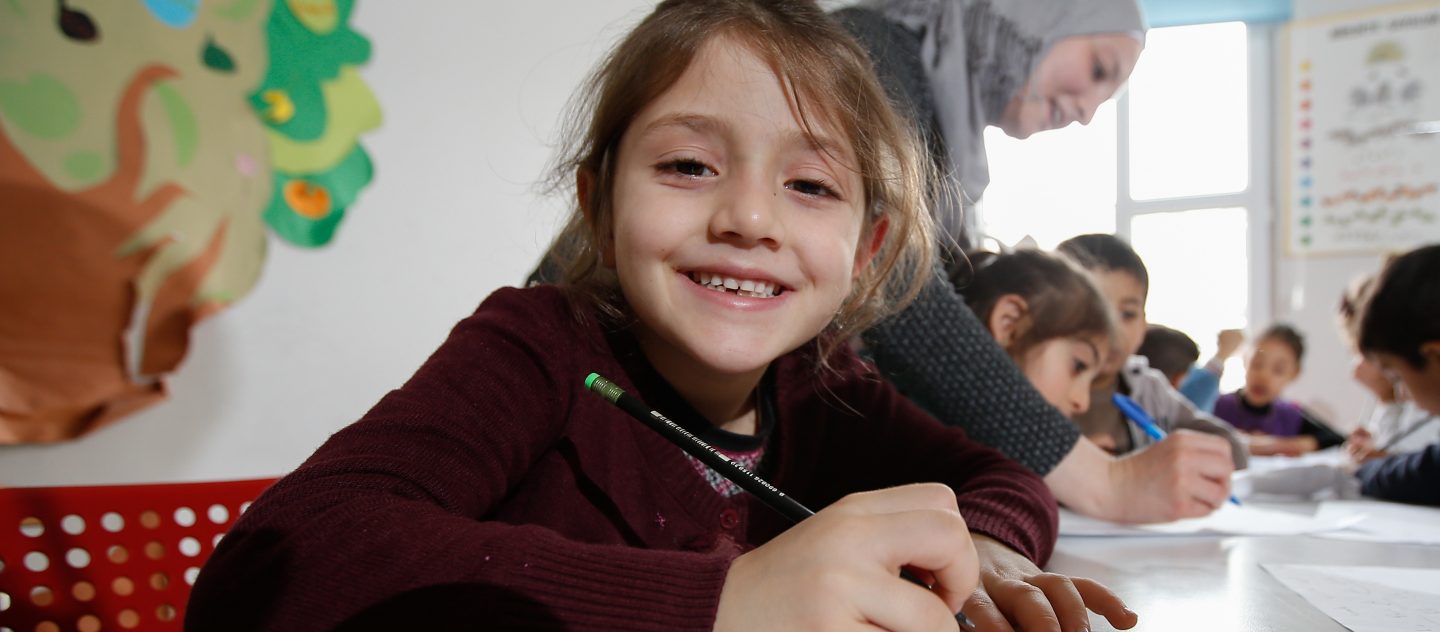UNHCR’s report “Missing Out: Refugee Education in Crisis” finds that worldwide refugees are five times more likely to be out of school than the global average. Only 50 per cent of refugee children have access to primary education worldwide, compared with a global average of more than 90 per cent.
The gap widens as these children become older, with only 22 per cent of refugee adolescents attending secondary school worldwide compared to a global average of 84 per cent. At the higher education level, less than one per cent of refugees attend university, compared to 34 per cent at global level.
Education is a basic human right, enshrined in the 1989 Convention on the Rights of the Child and the 1951 Refugee Convention. It is also a vital aspect of our work at UNHCR.
Without the chance to study, an entire generation is at risk.
In times of displacement, education is crucial. It can foster social cohesion, provide access to life-saving information, address psychosocial needs, and offer a stable and safe environment for those who need it most. It also helps people to rebuild their communities and pursue productive, meaningful lives.
In Turkey, national legislation supports the right of all children to receive education, including children whose families have sought international protection. Public schools are free of charge and all refugee children have the right to attend these schools. UNHCR works with its network of partner organizations to ensure that refugees are aware of these rights and are assisted with the procedures to be followed to enrol their children and benefit from available financial assistance programmes. UNHCR also works closely with the Ministry of National Education in coordination with UNICEF to support and complement their efforts to enroll refugee children in Turkish schools. As proficiency in Turkish is key to academic success, UNHCR works with the Ministry to ensure that children receive additional assistance in learning Turkish.
Refugee youth and young adults need to have access to educational programmes that will enable them to enter high skill professions and obtain the skills needed to make a significant contribution to the communities in which they live. UNHCR, in partnership with the Presidency for Turks Abroad and Related Communities (YTB), offers students who have completed high school the opportunity to attend intensive Turkish language programmes delivered by specialized language teaching institutes attached to universities that will enable students with little or no knowledge of Turkish to reach the proficiency level required for admission to university programmes.
In addition, refugee students have also been awarded full scholarships to study at Turkish universities. These scholarships cover the full duration of academic study towards a degree and provide monthly stipends to cover living expenses and activities where students can meet and create peer support networks. Turkey hosts the largest DAFI programme (UNHCR’s worldwide scholarship programme), with over 800 scholarships having been awarded since the inception of the programme in Turkey in 2014. As refugees from countries other than Syria are expected to pay foreign student fees at universities, UNHCR will be introducing cash grants for refugee students who have been accepted into degree programmes or who are currently enrolled in university programmes.
The ability to communicate effectively with others in the communities in which people live contributes significantly to refugee protection enabling people to live with dignity, have access to services and to interact socially with those around them. For this reason, UNHCR is working with the Ministry of National Education to expand the provision of free language classes offered to adults through its network of Public Education Centres. Adults are also able to attend skills training courses offered by these Centres in order to prepare them to enter the labour market or learn new skills that will enable them to generate income and become increasing self-reliant.

